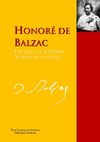Kitabı oku: «The Political History of England – Vol XI», sayfa 15
In the following year four royal marriages were announced. The Princess Elizabeth espoused the Landgrave of Hesse-Homburg; the Duke of Clarence, the Princess Adelaide of Saxe-Meiningen; the Duke of Cambridge, the Princess Augusta of Hesse; the Duke of Kent, the Princess Victoria Mary of Saxe-Coburg. The Duke of Sussex was already married, but not with the necessary consent of the crown, and the Duke of Cumberland was childless, having married three years earlier a divorced widow whom the queen, for private reasons, declined to receive. It is a striking proof of the discredit into which the royal family had fallen, since the old king virtually ceased to reign, that parliament, in spite of its anxiety about the succession, displayed an almost niggardly parsimony when it was moved to increase the allowances of the princes about to marry. No application was made on behalf of the Princess Elizabeth or the Duke of Sussex, who was already married morganatically. The additional grant of £6,000 a year asked on behalf of the Duke of Cumberland was refused by a small majority, partly, no doubt, because his anti-liberal opinions and untrustworthy character were no secret to public men. £10,000 a year was asked for the Duke of Clarence, and justified by Canning as less than he might fairly have claimed, but it was reduced to £6,000 and declined by the duke as inadequate; he afterwards married without a parliamentary grant. The provision of £6,000 a year for the Dukes of Cambridge and Kent respectively was stoutly opposed but ultimately carried. Of all George III.'s sons, the Duke of Kent was perhaps the most respected. It has been truly said that if the nation could have expressed its dearest wish, in the spirit of prophecy, after the death of the Princess Charlotte, it would have been that the issue of the Duke of Kent's marriage with Prince Leopold's sister might succeed, as Queen Victoria, to the crown of her grandfather.67
THE DEATH OF GEORGE III.
On November 17, 1818, Queen Charlotte died, having filled her great and most difficult position for nearly sixty years with sound judgment, exemplary moral integrity, and a certain homely dignity. The Duke of York succeeded her as guardian of the king's person. Little more than a year later she was followed to the grave by the Duke of Kent, who died on January 23, 1820, and by the king himself, who died on January 29, in the eighty-second year of his age. He was not a great sovereign, but, as a man, he was far superior to his two predecessors, and must ever stand high, if not highest, in the gallery of our kings. His venerable figure, though shrouded from view, was a chief mainstay of the monarchy. Narrow as his views were, and obstinately as he adhered to them, he was not incapable of changing them, and could show generosity towards enemies, as he ever showed fidelity to friends. His reception of Franklin after the American war, and of Fox after the death of Pitt, was that of a king who understood his kingly office; and his strict devotion to business, regardless of his own pleasure, could not have been exceeded by a merchant engrossed in lucrative trade. The many pithy and racy sayings recorded of him show an insight into men's characters and the realities of life not unworthy of Dr. Johnson. His simplicity, kindliness, and charity endeared him to his subjects. His undaunted courage and readiness to undertake sole responsibility, not only during the panics of the Gordon riots and of the impending French invasion, but in many a political crisis, compelled the respect of all his ministers, and his disappearance from the scenes, to make way for the regency of his eldest son, was almost as disastrous for English society as the exchange, in France, of Louis XIV.'s decorous rule for that of the Regent Orléans.
The European concert which had been called into existence by the war against Napoleon, and had effected a continental settlement at Vienna, continued to act for the maintenance of peace. The treaty of alliance of 1815 only bound the four powers to common action in the event of a fresh revolution in France which might endanger the tranquillity of other states. The holy alliance was more comprehensive and wider in its aims, but was too vague to form the practical basis of a federation. The settlement of Europe by the treaty of Vienna was, however, the work of all the powers, and they had therefore an interest in everything that might be likely to affect that settlement. The habit of concerted action, once formed, was not lightly abandoned, and the succeeding age was an age of congresses. But though there was a general sentiment in favour of concerted action it manifested itself in different ways. The causes of the recent struggle with France had been political in their origin, and it was agreed that a recurrence of disorder from France could be best prevented by the establishment of a government in that country which should be at once constitutional and legitimist. England favoured, and Russia, the most autocratic of states, favoured still more vehemently, the development of constitutions wherever it might be practicable, while Austria, being composed of territories with no national cohesion, endeavoured rather to thwart the growth of constitutions. But Russia was also the most active advocate of joint interference where a constitutional reform was effected by unconstitutional means. Great Britain and Austria, on the other hand, with a juster instinct, considered armed interference an extreme remedy which might often be worse than the disease of a revolution.
ROYALIST REACTION IN EUROPE.
The numerous restorations of 1814 and 1815 were followed by a royalist and aristocratic reaction in many countries of Europe. In France Louis XVIII. found himself confronted by an ultra-royalist chamber of deputies which clamoured for vengeance on the partisans of the republican and imperial régimes and for the restoration of the privileges and estates of the Church. Ferdinand VII. of Spain swept away the unwieldy constitution of 1812 amid the rejoicings of his people, who little foresaw his future tyranny; and Great Britain did not venture to resist the action of Ferdinand of the Two Sicilies in abolishing a constitution which British influence had induced him to grant his island kingdom in 1813. In Prussia the government dealt sternly with the liberal press, and the provincial estates opposed the institution of a national diet; while in Würtemberg a parliament assembled under a liberal constitution demanded the restoration of the ancient privileges of the nobility and clergy. In the Two Sicilies British influence, supported by that of Austria, was used to prevent outrages on the defeated party; in Spain the moderate counsels of Great Britain were less successful. Austria endeavoured to prevent future disturbance in the Italian peninsula by a secret treaty, which obtained the sanction of the British government, requiring the Two Sicilies to adopt no constitutional changes inconsistent with the principles adopted by Austria in the Lombardo-Venetian kingdom. Similar treaties were concluded by Austria with Tuscany, Modena, and Parma, and she thus gained an ascendency in Italy, from which only Sardinia and the papal states were exempt. Russian agents meanwhile began to conduct a liberal propaganda in Spain and Italy, and Russia was even credited with a desire to make a liberalised Spain a counterpoise to England on the sea.
For a time, however, there were no European complications of a formidable nature. In 1816 a British squadron was sent out under Lord Exmouth lo execute the decree of the congress of Vienna against the Barbary states. The Dey of Algiers and the Beys of Tunis and Tripoli were called upon to recognise the Ionian Islands as British, to accept British mediation between them and the courts of the Two Sicilies and Sardinia, to restore their Christian captives, and not to authorise further piracy. These terms were accepted by the Beys of Tunis and Tripoli, and the two first demands were granted by the Dey of Algiers. He was allowed a delay of three months in order to obtain the sultan's permission for granting the remainder, but in the interval a massacre of Italian fishermen took place at Bona. Lord Exmouth now sailed from Gibraltar to attack Algiers. On his demands being again ignored, he bombarded that city on August 27 for more than six hours. The arsenal and storehouses and all the ships in the port were burned, and on the next day the dey accepted Exmouth's terms; peace was signed on the 30th, the principal terms being the abolition of Christian slavery, and the delivery of all slaves to Exmouth on the following day.
The treaty of Vienna in placing the Ionian Islands under British protection had made no mention of the towns of Parga and Butrinto on the mainland of Epirus which had passed under British rule along with the islands. These places were now surrendered to Turkey in accordance with a former treaty, in return for the Turkish recognition of the British protectorate over the islands. The inhabitants of Parga were, however, vehemently opposed to such a transference of their allegiance, and they were conveyed to the Ionian Islands and compensated for the loss of their property. The Turks entered into occupation of Parga in 1819. In 1817 and 1818 wild rumours of Russian aggression in the direction of the Mediterranean began to circulate in England. It was reported that Spain had promised to cede Port Mahon to Russia; and that Russia was preparing a great military force, to be employed, if necessary, in alliance with the Bourbon states, France, Spain, and the Two Sicilies, to counteract British and Austrian influence. This influence, with that of Prussia, had really been employed to keep the Dardanelles closed against Russian ships. Meanwhile Austria had won over Prussia to her conservative policy in Germany.
The violent language of the liberal party, especially at the universities, already began to terrify the Prussian government. The first danger signal was given at the Wartburg festival of delegates from the German universities in 1817, at which the students indulged in some boyish manifestations of their sympathies; their proceedings made some stir in Germany, and Metternich declared that they were revolutionary. The horror of liberalism was destined to be heightened in 1819 by the murder of the tsar's agent, the dramatist Kotzebue, by a lunatic member of a political society at Giessen. Its immediate result was a conference of German ministers at Carlsbad, where several resolutions for the suppression of political agitation were passed, and afterwards adopted by the diet at Frankfort. This policy was embodied in the "final act" of a similar conference held at Vienna in the following year (1820), which empowered the greater states of Germany to aid the smaller in checking revolutionary movements. At the same time it reaffirmed the general principle of non-intervention, and even laid down the pregnant doctrine that constitutions could not be legitimately altered except by constitutional means. The union of Austria and Prussia on the conservative side had rather the effect of throwing the secondary states of southern Germany upon the liberal side. In the spring and summer of 1818 Bavaria and Baden framed constitutions, and in 1819 Würtemberg once more essayed parliamentary government, which the reactionary policy of her first parliament had compelled her to abandon. The significant fact in European politics was that Frederick William III. of Prussia, always accustomed to being led, had passed from the influence of Russia to that of Austria.
THE CONFERENCE OF AIX-LA-CHAPELLE.
Such were the general tendencies of European politics when the conference of Aix-la-Chapelle assembled on September 30, 1818. The primary object of this conference was to consider the request of France for a reduction in the indemnity demanded of her and for the evacuation of her territories by the four allied powers. Wellington and Castlereagh, who represented Great Britain, earned the gratitude of France by readily agreeing to these requests, which were granted without any difficulty. This question was obviously one which required such a conference to settle it; but the conference, having once assembled, was urged to deal with other difficulties that less directly concerned it. One of these was a dispute between Denmark and Sweden about the apportionment of the Danish debt, which, in consideration of the annexation of Norway to Sweden, under the treaty of Kiel, was to be partly borne by Sweden. Denmark appealed to the four powers, representing that treaty as in fact a part of their own settlement of Europe. Sweden would not admit the right of the powers to intervene, but finally settled her difficulty with Denmark by a separate negotiation conducted by the mediation of Great Britain in 1819.
A still more doubtful question was raised by the request of Spain for the assistance of the allied powers against her revolted colonies. The Spanish dependencies in America had declined to acknowledge Joseph Bonaparte, and had lapsed into a state of chaos; the restoration of Ferdinand VII. had induced most of them to return to their allegiance, but the three south-eastern colonies, Banda Oriental (Uruguay), La Plata (the Argentine), and Paraguay, continued in revolt. In 1817 fortune turned still further against Spain; Monte Video, the capital of Banda Oriental, was taken by Portugal, or rather by Brazil, and Chile revolted against Spain. On February 12, 1818, Chile proclaimed her independence, and she began at once to procure warships in England and the United States, of which Lord Cochrane took command. The four allied powers and France had protested against the seizure of Monte Video, but otherwise Spain had been left to herself. Great Britain seemed to have more to gain than to lose by the insurrection. The revolted colonies were open to her commerce, and by weakening Spain they had strengthened the maritime supremacy of Great Britain. Nevertheless Great Britain was willing to mediate, on condition that Spain would make reasonable concessions. Spain, however, refused to make any concessions at all, and called on the allied powers to aid her in crushing the insurrection by force. Great Britain did not regard an unconditional subjection of the colonies as either expedient or practicable, and opposed this course; Austria took the same view, and thus placed intervention out of the question.
THE EUROPEAN ALLIANCE.
But the principal question before the conference of Aix-la-Chapelle was not one relating to any particular difficulty, but the permanent form of the European alliance. The tsar desired a general confederacy of European powers, such as had signed the treaty of Vienna and the holy alliance. This confederacy was to guard against two evils – that of revolutionary agitation and that of arbitrary administration and sectional alliances. Such a project, though doubtless proposed in good faith, practically gave Russia an interest in the domestic movements, both reactionary and constitutional, of every country, while it forbade any political combination to which Russia was not a party. Castlereagh agreed with Metternich in thinking that such an extension of Russian Influence was more to be dreaded than local disorder, and Great Britain and Austria proposed therefore that the alliance should be based on the treaty of Chaumont, as renewed at Vienna and Paris, though they were willing to have friendly discussions from time to time without extending the scope of the alliance. All parties desired to include France in their alliance, but the tsar pertinently objected that France could not be admitted to an alliance aimed solely against France. A compromise was therefore adopted. The quadruple alliance for war, in case of a revolution in France, was secretly renewed, and centres for mobilisation were fixed, while France was publicly invited to join the deliberations of the allied powers. A secret protocol was then signed providing for the meeting of congresses from time to time, and giving the minor European powers a place in these congresses when their affairs should be under discussion.
CHAPTER IX.
THE LAST YEARS OF LORD LIVERPOOL
The only important events of domestic interest in the year 1820, after the death of George III., were the Cato Street conspiracy, and the so-called trial of Queen Caroline. For the accession of the king, who had so long exercised royal functions as regent, produced no visible effect either on the personal composition or on the general policy of the government. Immediately after his proclamation he was attacked by a dangerous illness, but on his recovery he promptly raised two questions which nearly involved a change of ministry. One of these was a proposal to increase his private revenue, which he was induced to abandon for the present. The other was a demand for a divorce, which the ministers firmly resisted, though they ultimately agreed to a compromise, under which the divorce question was to be deferred, so long as the queen remained quietly abroad, but action was to be taken in case she returned to assert her rights.
THE CATO STREET CONSPIRACY.
In the midst of these difficulties the lives of the ministers were threatened by a plot somewhat like those of the seventeenth century. Later writers have represented it as contemptible in its conception, and as directly provoked by the "Manchester massacre". So it may be said that Guy Fawkes was an insignificant person, and that his employers were exasperated by the severe treatment of popish recusants. The facts are that Arthur Thistlewood, the author of the Cato Street conspiracy, was a well-known confederate of the Watsons and other members of the extreme reform party, and that his plan for murdering the assembled cabinet in a private house would probably have been effectual, had it not been detected by the aid of an informer. This informer, Edwards, had warned the authorities in November, 1819, of the impending stroke, and may or may not have instigated Thistlewood's gang to execute it at a moment and place well-calculated to secure their arrest. At all events twenty-four conspirators armed themselves in Cato Street, near the Edgware Road, London, for the purpose of assassinating the ministers at a cabinet dinner in Harrowby's house in Grosvenor Square, and some of their associates were posted near the door of that house to summon them when the guests should have assembled. Harrowby's dinner was of course put off, but the watchers were deceived by the arrival of carriages for a dinner party next door, and failed to apprise the gang in Cato Street. The police rushed in upon the gang, but a body of soldiers ordered to support them reached the spot too late, a policeman was stabbed, and Thistlewood, with twelve or fourteen others, contrived to escape. He was captured the next morning, and executed with four of his accomplices, five more were transported for life, and the atrocity of the enterprise was naturally treated in the king's speech as a justification for the repressive measures in operation. In the following April a petty outbreak in Scotland was easily put down by a few troops at a place called Bonnymuir. It was, however, preceded by a treasonable proclamation, which spread terror among the citizens of Glasgow for several hours, and was sufficiently like an attempt at armed rebellion to confirm the alarm excited by the Cato Street conspiracy. In the face of such warnings, the energy of the government in stamping out disorder could hardly be censured.
The last parliament of George III. was prorogued on February 28, 1820, and dissolved on the following day. One of its last debates was on Lord John Russell's proposal to suspend the issue of writs to the boroughs of Grampound, Penryn, Barnstaple, and Camelford. This was carried in the house of commons, but lost in the house of lords. The new parliament was opened by George IV. in person on April 21. Widespread excitement occasioned by the question of the divorce prevented the business of the first session from attracting much attention. A deficit in the revenue, coinciding with growing expenditure, compelled Vansittart to fall back on a fresh manipulation of the sinking fund. One measure, however, of the highest importance was introduced by Brougham. The committee of 1814 on national education had amassed a great body of valuable evidence, and he now founded upon its report a comprehensive bill extending to the whole country. It placed the management and teaching of elementary schools entirely in the hands of Churchmen, and was dropped after the first reading, but the conscience of the nation was roused by it, and it bore fruit later. Further slight mitigations of the criminal law were carried as a result of attacks made by Sir James Mackintosh, upon whom the mantle of Romilly had fallen, and it is worthy of notice that even Eldon, the stout opponent of such mitigations, condemned the use of spring-guns, as a safeguard against poaching. The only ministerial change in this year was the final retirement in May of Lord Mulgrave, who had held high office in every ministry except that of Grenville since 1804, and had voluntarily surrendered his post at the head of the ordnance in 1818 to make room for Wellington.
QUEEN CAROLINE.
The "queen's trial," as it is erroneously called, was the last act but one in a domestic tragedy which had lasted twenty-five years. The Princess Caroline of Brunswick was a frivolous and ill-disciplined young woman when she was selected by George III. as a wife for the heir-apparent, already united and really attached to Mrs. Fitzherbert. The princess could not have been married to a man less capable of drawing out the better side of her character, nor was she one to inspire his selfish and heartless nature with a sentiment, if not of conjugal love, yet of conjugal friendship. From the first there was no pretence of affection between them. A few years after her marriage she was relegated, not unwillingly, to live independently at Blackheath, where many eminent men accepted her hospitality. During this period, as we have seen, a "delicate investigation" into her conduct was instituted in 1806. Though she emerged from it with less stain on her character than had been expected, she never enjoyed the respect of the royal family or of the nation, and there was no question of her sharing the home of her husband. Instead of being a bond of concord between them, the education of her daughter was the subject of constant discord, requiring the frequent intervention of the old king until he lost his reason. After she went abroad in 1814, she travelled widely, but her English attendants soon retired from her service, and she incurred fresh suspicion by her flighty and undignified conduct. She had no part in the rejoicing for the marriage, or in the mourning for the death, of the Princess Charlotte; and in 1818 a secret commission, afterwards known as the Milan commission, was sent out by the prince regent to collect evidence for a divorce suit. Not only Liverpool, but Eldon, who had formerly stood her friend, concurred in the appointment of this commission, promoted by Sir John Leach, and its report was the foundation of the proceedings now taken against her.
These proceedings were immediately due to her own action in returning to England in June, 1820, but this action was not wholly unprovoked. She had long and bitterly resented her official exclusion from foreign courts, and when, after the king's accession, her name was omitted from the prayer-book, she protested against it as an intolerable insult. Contrary to the advice of her wisest partisans, including Brougham, she persisted in braving the wrath of the king and throwing herself upon the people. She was received at Dover with acclamations from immense multitudes; and her journey to and through London was a continued ovation. Not that her innocence was established even in the popular mind, but that, innocent or guilty, she was regarded as a persecuted woman, and persecuted by a worthless husband. The ministry fulfilled its promise to the king by moving the house of lords to institute an inquiry into the queen's conduct. Pending this, conferences took place between Wellington and Castlereagh, on the part of the king, and Brougham and Denman on that of the queen. It was at once laid down as a preliminary basis of the negotiation that neither should the king be understood to retract, nor the queen to admit, any allegation against her. The points upon which she inflexibly insisted were, the recognition of her royal status at foreign courts, through an official introduction by the British ambassador, and the insertion of her name in the prayer-book.
The house of commons, on the motion of Wilberforce, offered to protect her honour (whatever that might import) on condition of her waiving this last point, but she courteously declined its conciliatory proposals on June 22. On July 4 a secret committee of the house of lords recommended a solemn investigation, to be carried out "in the course of a legislative proceeding," and on the 8th Liverpool introduced a bill of pains and penalties, to deprive her of her title, and to dissolve her marriage. The second reading of this bill was formally set down for August 17, and for several weeks afterwards the house of lords was occupied in hearing evidence in support of the charges against her. The whole country was deluged with the squalid details of this evidence, the ministers were insulted, and the sympathy of the populace with her cause was obtrusively displayed in every part of the kingdom. On October 3, after an adjournment of the lords, Brougham opened the defence in the most celebrated of his speeches. On November 2 the lord chancellor, Eldon, moved the second reading of the bill, and on the 8th it was carried by a majority of twenty-eight. Four days later, on the third reading, the majority had dwindled to nine only. Knowing the temper of the house of commons, Liverpool treated such a victory as almost equivalent to a defeat, and announced that the government would not proceed further with the measure.
Had the queen possessed the virtue of self-respect or dignity, she would have been satisfied with this legislative, though not morally decisive, acquittal. But she was intoxicated with popular applause, largely due to her royal consort's vices, and, after London had been illuminated for three nights in her honour, she declined overtures from the government, and appealed for a maintenance to the house of commons, which granted her an annuity of £50,000 in the next session. But she never lived to enjoy it After going in procession to St. Paul's, to return thanks for her deliverance, on the 29th, and vainly attempting, once more, to procure the mention of her name in the prayer-book, she concentrated her efforts on a claim of right to be crowned with the king. No government could have conceded this claim, and, when it had been refused by the privy council, her solemn protests were inevitably vain. Even her least prudent counsellors would assuredly have dissuaded her from the attempt which she made to force an entrance into Westminster Abbey on the coronation day, July 19, 1821. It was a painful scene when she, who had so lately been the idol of the fickle populace, was turned away from the doors amidst conflicting exclamations of derision and pity. A fortnight later, on August 2, she was officially reported to be seriously ill; on the 7th she was no more. In accordance with her own direction her body was buried at Brunswick. Her ill-founded popularity was shown for the last time, when a riotous multitude succeeded in diverting her funeral procession, and forcing it to pass through the city on its way to Harwich. But it did not survive her long; the people were becoming tired of her, and the king, who had forfeited the respect of the middle and upper classes, was less hated by the lower classes after her death.
GEORGE IV. IN IRELAND.
The personal character and opinions of George IV. seem to have influenced politics less during the early years of his reign than during his long regency. His coronation was celebrated with unprecedented magnificence, and amidst external demonstrations of loyalty, hard to reconcile with the unbounded enthusiasm which the queen had so lately inspired. Soon afterwards, he sailed in his yacht from Portsmouth on a voyage to Ireland, but put into Holyhead and there awaited news of the queen's expected death. This reached him at last, and probably impressed him, no less than his ministers, as "the greatest of all possible deliverances, both to his majesty and the country".68 He proceeded to Dublin in one of the earliest steam-packets, and secluded himself until "the corpse of his wife was supposed to have left England".69 He then plunged into a round of festivities, and pleased all classes of Irishmen by his affable and condescending manners. He was, indeed, the first sovereign of England who had appeared in Ireland on a mission of peace. John William Ward, afterwards fourth Viscount Dudley in his letters, describes him as having behaved like a popular candidate on an electioneering trip, and surmises that "if the day before he left Ireland, he had stood for Dublin, he might have turned out Shaw or Grattan ".70 Certain it is that his visit to Ireland was regarded as an important political event. The same kind of success attended his visit to Scotland in August of the following year, 1822. Thenceforth, he scarcely figures in political life until the resignation of Lord Liverpool in 1827, and though he consented with reluctance to Canning's tenure of the foreign office, he did not attempt to interfere with the change in foreign policy consequent upon it. He was, in fact, sinking more and more into an apathetic voluptuary; but he could rouse himself, and exhibit some proofs of ability, under the impulse of his brothers, the honest Duke of York and the arch-intriguer, the Duke of Cumberland.











